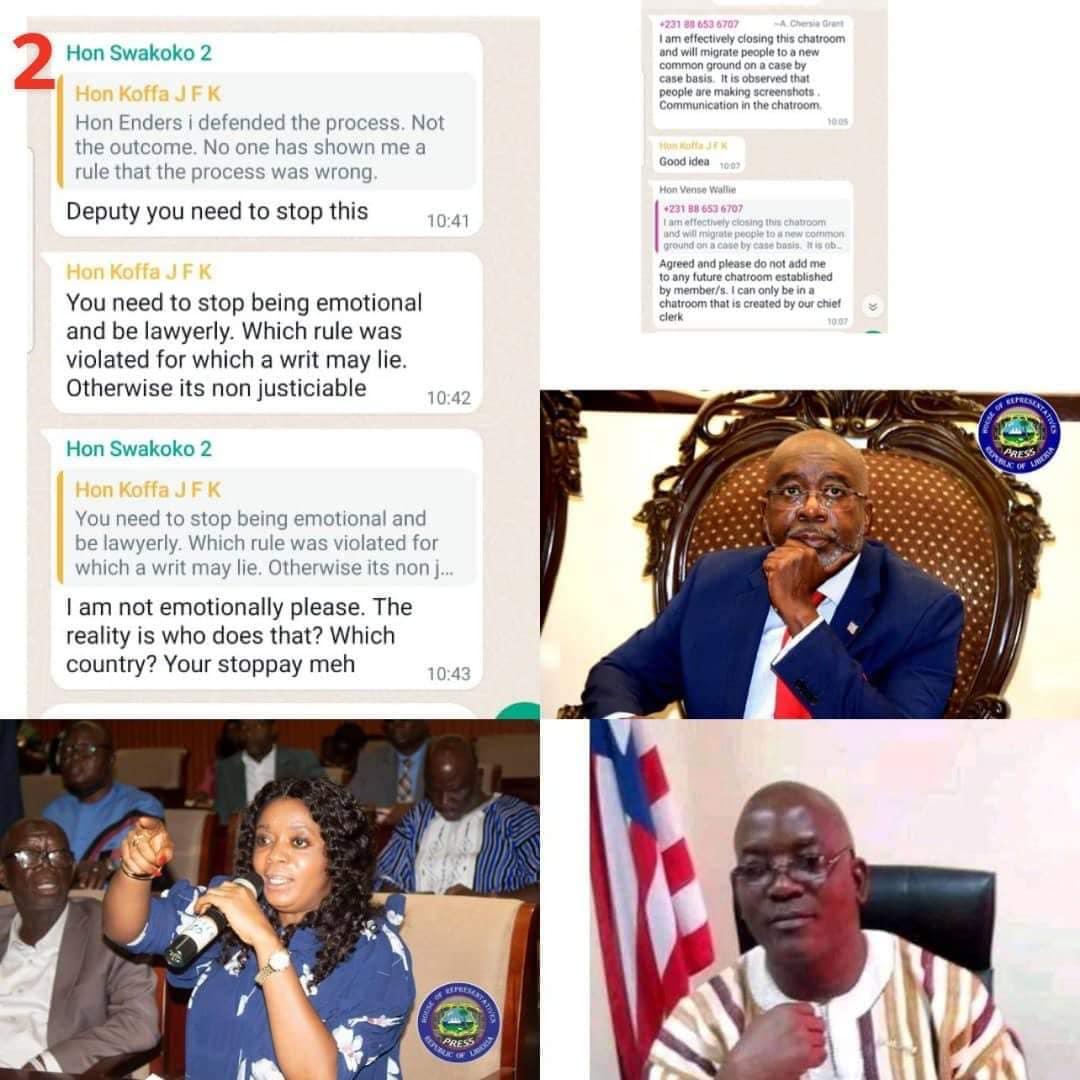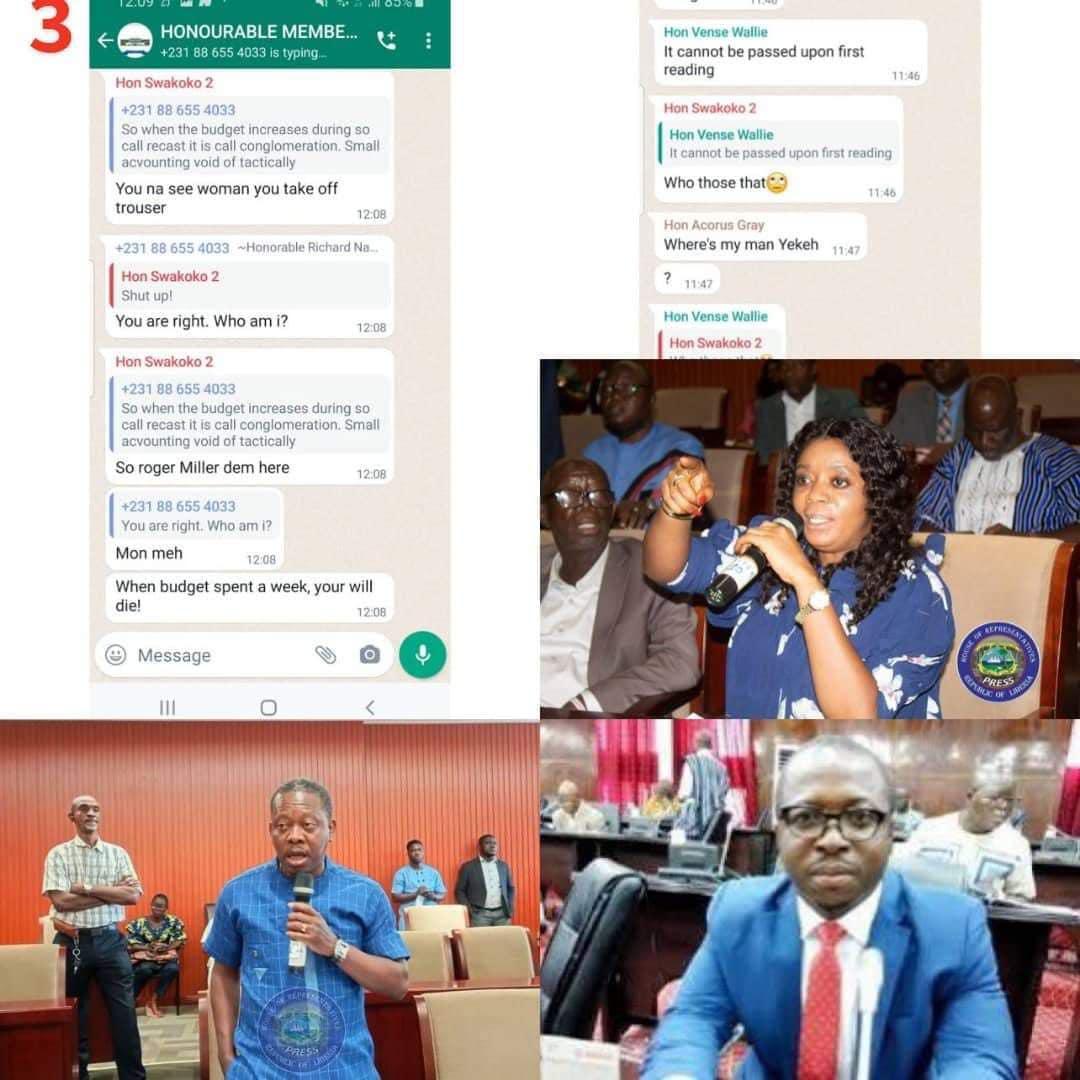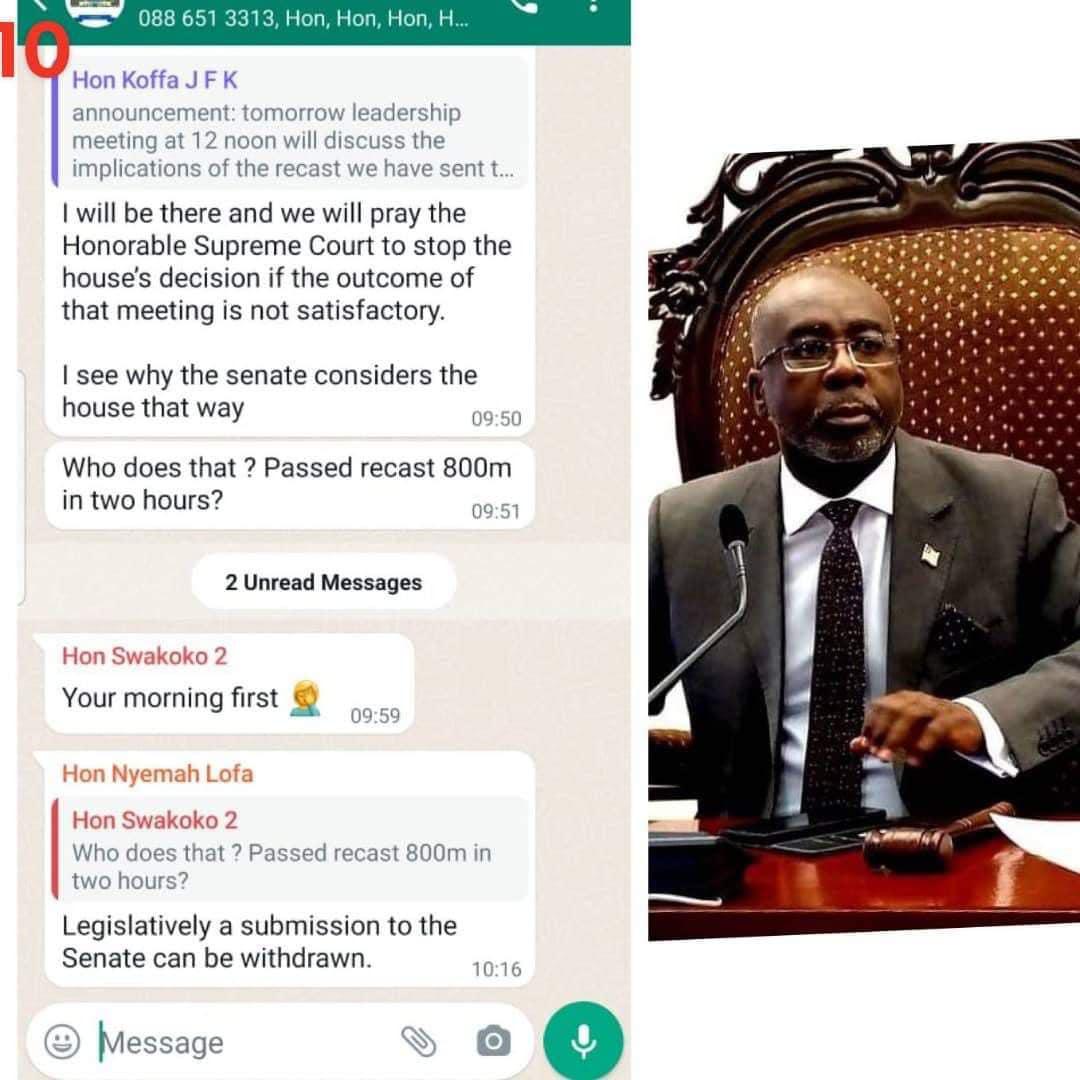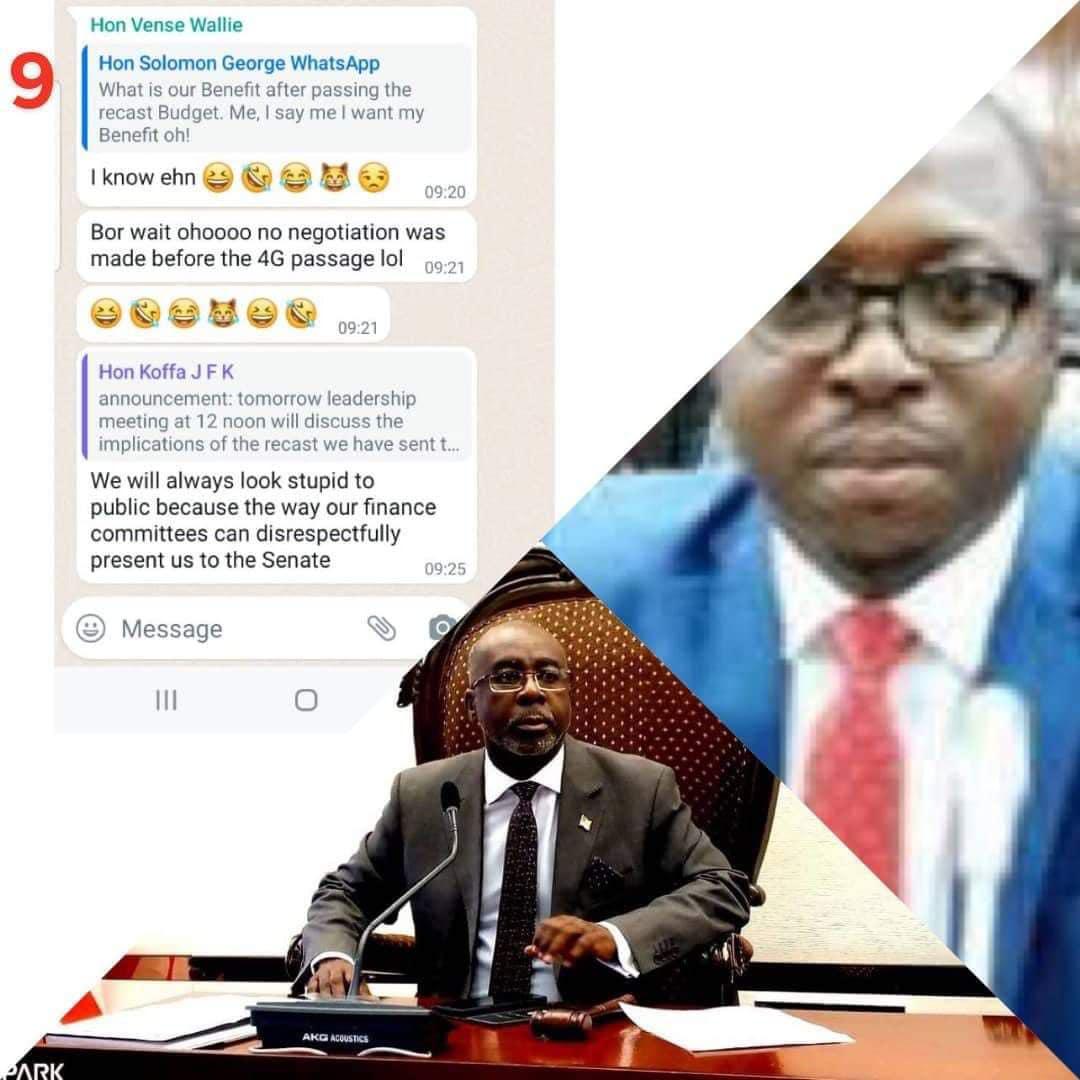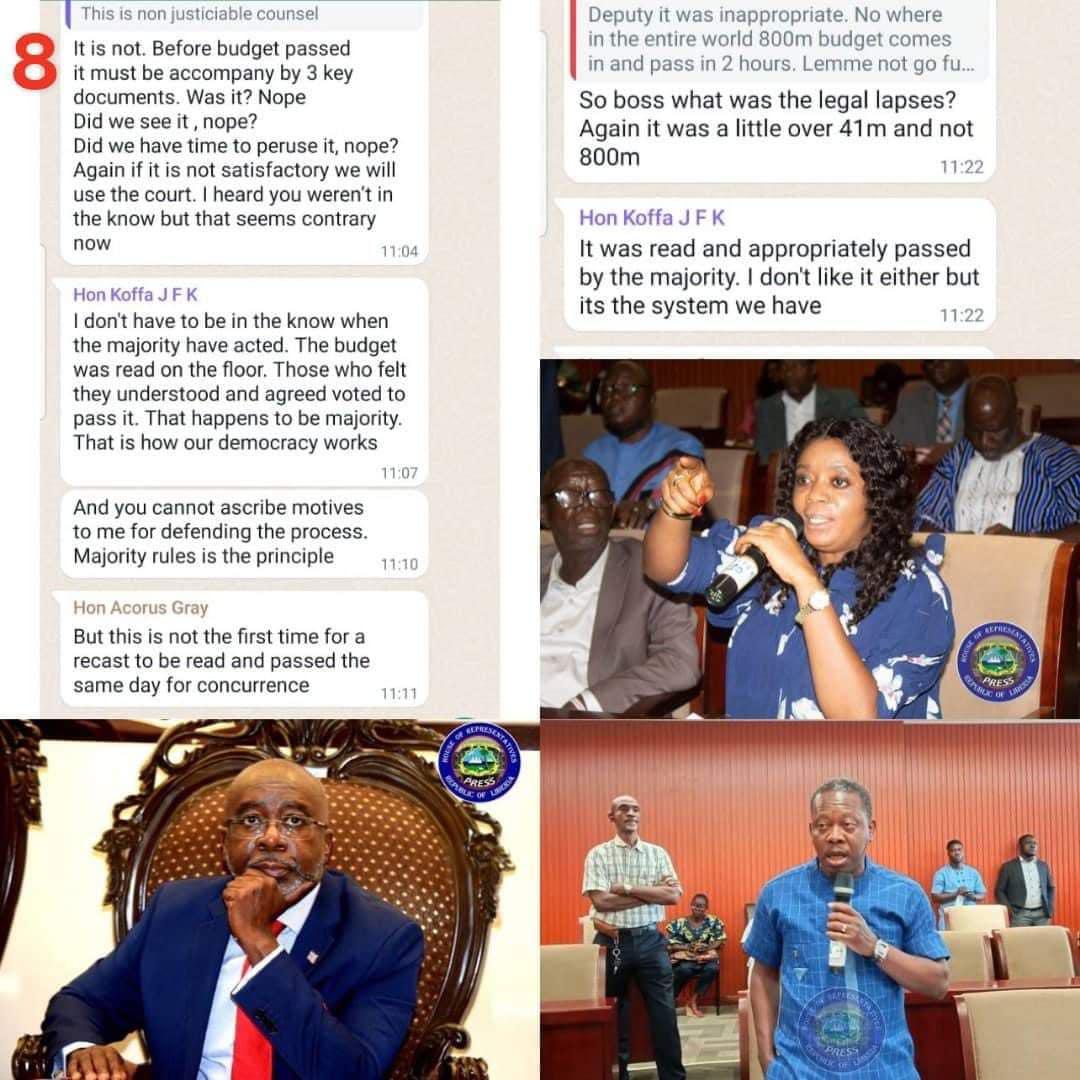Liberia: “No Quid Pro Quo” in Passing US$800M Recast Budget
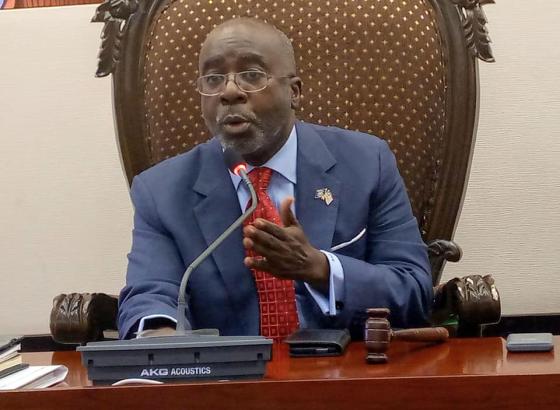
House Speaker J. Fonati Koffa
“You know we abide by the rule of law. This is our democracy. Our intention was noble,” says Deputy Speaker Koffa amid growing outrage over a reported quid pro quo deal.
The Deputy Speaker of the House of Representatives, J. Fonati Koffa has defended the majority of his colleagues’ action to speedily approve the US$806.5 million recast budget for the fiscal year 2022, saying the growing outrage over a reported quid pro quo deal for the legislation stems from a tremendous amount of misunderstanding.
Critics of the speedy passage of budget legislation, which has now been forwarded to the Senate for occurrence, have come across some leaked messages from the House Whatsapp Chatroom which, among other things, have revealed discussion about lawmakers' benefit for passage of the bill -- suggesting a quid pro quo deal.
The benefits issue was raised by Rep. Solomon George of Montserrado County District #17 and was never debunked by anyone of his colleagues including the Deputy Speaker, who is now denying such.
“What is our benefit after passing the recast budget? [As for me] I want my benefit,” Rep. George said. In response, Rep. Vincent Willie of Grand Bassa County District #4 asked whether there was any negotiation [with the executive] before the speedy (4G) passage of the budget. However, Willie did not receive a response regarding his inquiry.
Then came in Deputy Speaker Koffa, while responding to a notice of the House leadership meeting. In his response, he accused the House Finance committee of making them look ugly to the public due to the way the committee engaged the senate.
“We will always look stupid to the public because of the way our finance committee disrespectfully presents us to the senate. “
“Our intention was noble”
However, the Deputy Speaker yesterday denied any quid pro quo regarding the budget passage, arguing that the leaked messages are taken out of context. He added that while he and members of the House accept public criticism, people should however know that they abide by rule of law while voting to advance legislation to the Senate.
“I am bothered by how it is interpreted. I am bordered by the attack personally on my character based on perception, but again, that is what we sign up for,” Koffa said.
“You know we abide by the rule of law. This is our democracy. Our intention was noble. There was no quid pro quo for the passage of the recast budget. I am not disturbed by anyone leaking our messages. Once there are four people, you can imagine that in any chat room, it will get out. So I think we should all be cautious of the statements we make, but gently, you know they said all work without play makes jack a dull boy.”
The budget
The recast budget, which is forthe fiscal year 2022, was passed on June 7 inclusive of grants as submitted by President George Weah. It is worth US$806.5 million, reflecting a net upward adjustment of US$20 million or 2.9 percent over the originally approved budget of US$785.5 million.
Weah, in a letter to the House, said that the extra fiscal space was yielded through internal reprioritization of existing programs, identifying additional resources, as well as a World Bank Loan of US$15 million and that the remaining US$5 million would come from the mining sector.
However, a massive chunk of the US$806.5 million budget goes to recurrent expenditure — salary arrears, goods, and services, servicing public debts — leaving limited capital investment towards infrastructures and other assets that are crucial for rapid economic growth and development.
The budget, according to Weah, has an upward adjustment of US$20 million that will be added to a reappropriation amount of US$21,375,000, to sum up, the total available of US$41.3 million. Recurrent expenditure, as per the draft recast budget is estimated at US$648.5 million, while expenditure for the public sector or capital investment is US$158 million.
“I always tell people”
Meanwhile, Koffa is also now defending the House action, which many think was done in violation of their own rules and procedures.
The budget, usually, after being submitted, goes through its first reading and is sent to the relevant committees for deliberation and public hearings before reporting to the plenary for action. This rule and procedure were suspended so the first reading of the budget bill in the session was regarding the second and third reading — leading to a vote through a motion from Montserrado County District #8 Rep.Acarous Gray.
The vote was 15 in favor of passage, three against, and no abstention. This means that the House Committees on Ways, Means, and Development Planning and Public Accounts and Expenditure did not get the chance to probe the budget as is traditionally done — missing out on the opportunity to scrutinize and streamline appropriation.
But for the Deputy Speaker, they were not in violation of any rules and procedures as it was done to tackle issues of national concern.
“I always tell people that the reason why you see things go fast in the House of Representatives is that by the time it gets on the floor, there have been a lot of consultations. The House acted legally to pass the recast budget.”
“Yes, there are some members who may not have been seized of the matter. They would have wished that there would be more consultation, but the majority felt that was not their view and they went along with it.
He however ruled out threats of a lawsuit on the part of some lawmakers who are threatening to sue the House for such action. Koffa added that vote-taking on any instrument in the House of Representatives cannot be taken before a court for interpretation.
“You cannot take us to court.” There were no rules violated and the motion for reconsideration was not filed properly. As such, the recast budget has been forwarded to the Senate,” he said.
Earlier, Koffa, who is now downplaying his colleagues’ claim of a lawsuit, said in the leaked message that he could ask the Supreme Court to stop the House decision if the outcome of their executive meeting was not satisfactory.
“Who does that? Passed recast US$800 million in two hours. I see why the Senate considered the House this way,” he said. “I will pray the Supreme Court to stay the House decision if the outcome of the meeting is not satisfactory.”
In response, Rep. Francis Nyumalin of Lofa County Electoral District #1 said that legislative submissions to the senate can be withdrawn… but this never happened as the bill has been submitted to the Senate for occurrence.


